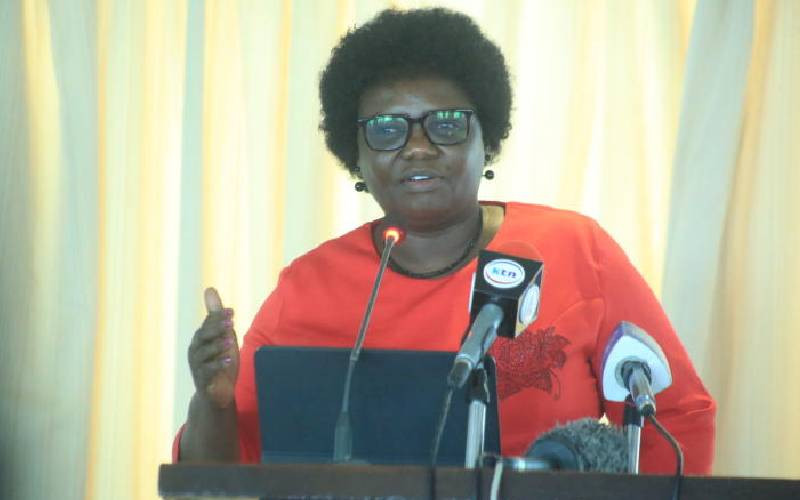
EAC Council of Ministers Chairperson Beatrice Askul, says that under the south-south trade concept, the region can record high food supplies and also deepen trade. [File, Standard]
East and Central African countries have assured implementation of a broad roadmap encompassing bold actions to boost food and nutrition security.
The East African Council (EAC) of ministers recently agreed to fast-track focused plans targeting to increase food production to feed the increasing population and deepen grain trade in the region.
EAC Council of Ministers Chairperson Beatrice Askul, speaking recently during the closing of the 11th African Grain Trade Summit (AGTS) in Zanzibar, argued that under the south-south trade concept, the region can record high food supplies and also deepen trade.
“We commit to building resilient grain markets by strengthening regional integration and removing barriers that hinder trade and prioritising harmonisation of standards and regulatory frameworks so that African grain is competitive both regionally and globally, “ said Askul, who is also Kenya’s EAC and Regional Development Cabinet Secretary.
The three-day meeting was convened at Tanzania’s Indian Ocean archipelago of Zanzibar and organised by the East African Grain Council (EAGC).
The countries, Askul said, will mobilise resources to support the importance of scaling digital innovations and climate-smart technologies to reduce post-harvest losses and improve market intelligence.
In most of the regional countries, annually, farmers incur between 30 per cent and 40 per cent post-harvest losses, leading to starvation, forcing governments to import more food to bridge the deficit.
This has made the region one of the food-deficient areas and thus requires spending a lot of resources to source more food from the external markets. Kenya, for example, has to spend over Sh200 billion annually on food imports.
According to the African Union (AU) secretariat, Africa’s food import bill currently stands at $48 billion (Sh6.216 trillion), a major concern among the agriculture value chains and governments as food production continues to decline over the years.
AU under the trade framework -African Continental Free Trade Area (AfCFTA) is pushing for south–south grain trade with full implementation of the strategy, which it says, if effectively implemented, could increase intra-African maize trade by up to 40 per cent by 2030.
“Key concerns that need to be addressed include the increasing food contamination, post-harvest losses, lack of strategic food reserves, low efficiency systems and geo-politics and conflicts,” said Komla Bissi, a senior advisor to the AfCFTA secretary general.
